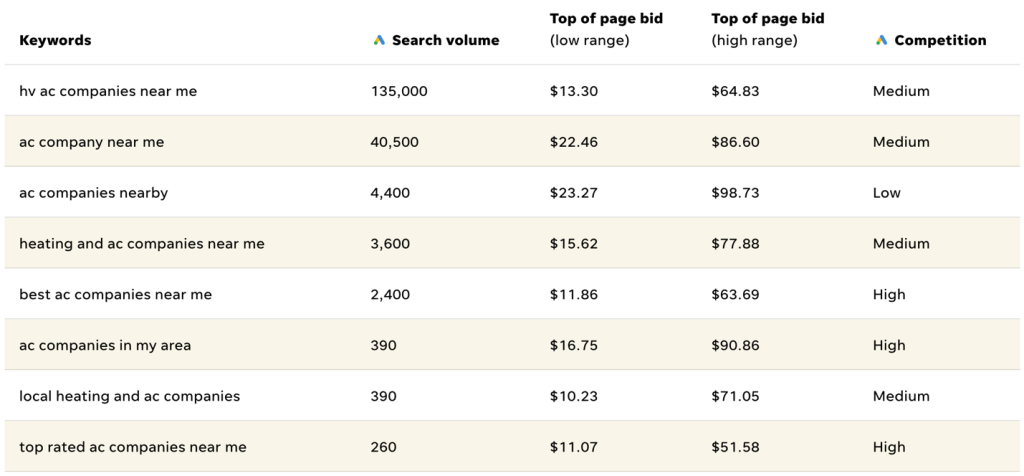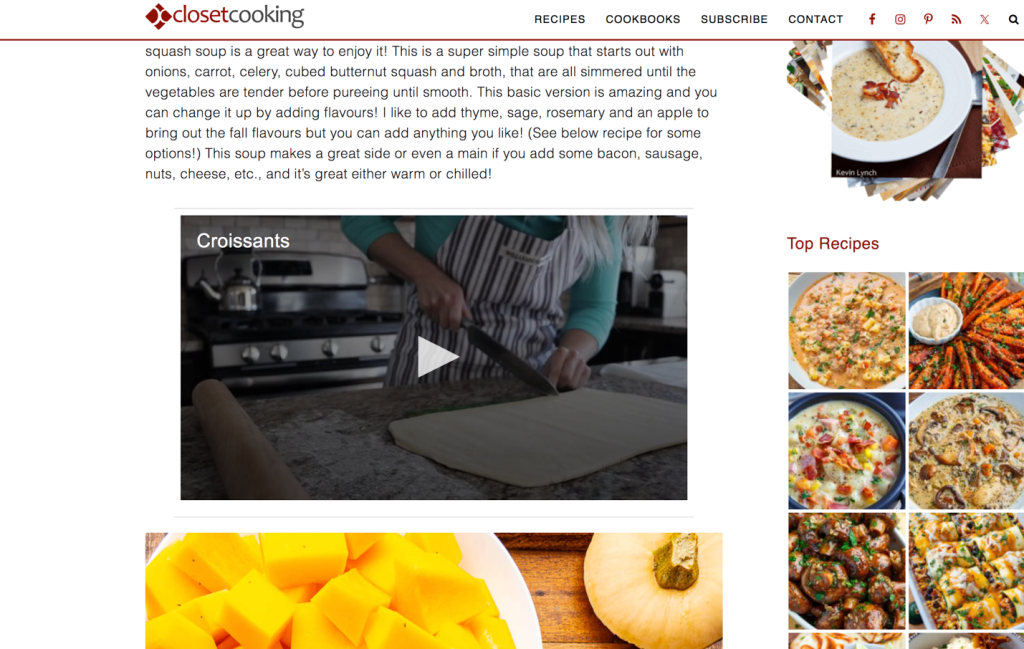How to Make Your Food Blog Irresistibly Yummy for Google Rankings?
SEO strategy is at the core of any successful blog. It is even more critical in densely populated niches like Food blogs.
Quick Links
Making your food blog stand out in a sea of authoritative blogs isn’t mere guesswork. It requires a long-term SEO strategy.
Here are 11 ways you can make your food blog stand out and beat the competition;
1 Long-tail keyword
With so many food blogs, long-tail keywords are your best bet to outrank them on Google. You must research your long-tail keywords and plan your content strategy accordingly.
Here’s an example of how to do it.
Instead of writing ‘Birthday cake,’ write ‘Sugar-free homemade birthday cake,’ this will help you solve the query of anyone looking to bake a birthday cake for their diabetic loved ones.
In short, long-tail keywords can help Google find your recipe (and, most importantly, your website) in a sea of food blogging websites.

2 Internal linking
Link your related posts through internal linking. This helps you make your users stay on your website longer.
Once they have found you through your long-tail keywords, showing your other related content will only help you.
Why just settle with the sugar-free birthday cake?
Why not also tell them about your sugar-free cupcake recipe?
Internal linking is a great way to turn your one-time casual visitor into an ardent follower. Rather than just checking out one of your recipes, they will know you have a ton of other recipes, and yours will be the first site they visit whenever they need to look up any recipe.
3 Optimize image and alt text
Food is one niche where the visuals are as important in a blog as the text if not more. Adding high-quality photos is a must for your website, but what’s even more critical is adding alt text for each image. Sounds like too much work?
Here’s why all those troubles are worth your time.
Alt text provides valuable information about your images to Google, which helps your content rank. Also, it helps the visually impaired as they depend on screen readers.
So, instead of just putting your pictures with an alt text that says ‘random image 65’, be a little descriptive with your photos and rename it to ‘sugar-free chocolate cake.’
Decreasing the size of your image without compromising the quality is another good idea, making your website easier to load on mobile devices.

4 SEO Titles and Meta descriptions
You must have an SEO title and meta description for each post. Make sure your meta descriptions contain long-tail keywords as well. This will help your content to compete against seasoned food bloggers.
Also, do not forget to optimize your older posts’ titles and meta descriptions, even the ones you wrote months or years ago.
You can make this task easier by installing the Yoast SEO plugin. It will help you ensure you align with the best SEO practices.
5 Season specific content
Plan your content ahead of schedule. Since people are more likely to search for the perfect turkey recipe a few days before Thanksgiving, have your post ready to serve them a month ahead.
“SEO is a long-term game. New content takes weeks and, in some cases, months to rank on Google. So, planning your content sets up your blog nicely for ranking”, says Robert from Houston SEO.
Moreover, if you already have the Turkey recipe on your blog, Thanksgiving is an excellent time to check for any loose SEO ends to tie. Put a better photo, tweak that meta description, or use a longer keyword.
6 On-page SEO (Fast Website)
No SEO can bring traffic to your website if it’s slow. Google gives a very high preference for user experience, so if your website loads slowly, your chances of ranking your website become very slim.
Use GT Metrix to check the loading speed of your website. If your website ends up being on the slower side, it is advisable to audit it.

Many free tools available on the web can help fully audit your website. Look out for loose ends that can help improve your website’s speed.
7 WordPress Recipe plugin
There’s a reason why WordPress is so popular with users. Besides various themes that suit your personality, it offers some great plugins.
You can use some of their most popular recipe plugins as a food blogger. Recipe plugins like WP recipe are created to help food bloggers with SEO.
Although it provides a vast range of settings and flexibility, using the plugin with the default setting is good enough for you.
WP Tasty and Mediavine Create are other plugin options on your WordPress food blog.
8 Include Videos
Adding good-quality videos is another good idea. Not everyone likes reading food recipes online; adding videos helps cater to users who prefer videos.

Adding videos is an excellent way to ensure your users have no queries about the recipe, and it helps them stay on your blog longer.
Also, add the videos to your YouTube channel. In this way, you get traffic to your blog, even YouTube.
Getting traffic from social media sites is an excellent way to tell Google that your site is reliable and authoritative.
What’s more?
You increase your visibility as you can end up showing on video results of Google.
Read: Mastering Video Marketing for Your Website
9 Crisp URLs
Keeping your URLs short, crispy, and concise is another essential part of effective SEO. It helps the reader and the search engines know what your page is about.
Imagine if you are looking for how to bake a chocolate cake, and the following two URLs show up;
hxxs://www.Chocolate-cake.com/sugar-free
hxxs://choclate-cake/20%%$$%%food%%best%%
Which one are you more likely to click on?
The first one. It has better chances to catch your eye. It does not look spammy like the second one but also gives you additional information that the chocolate recipe is sugar-free.
The second URL looks like the text version of a clickbait YouTube video.

10 Voice search is the future.
Whether you like it or not, voice search is here to stay. If anything, it will only be more predominant in the future.
Some research has shown that in 2024, almost 30% of internet users did voice searches to help in the US. So, if you are not optimizing your content for voice search, you will lose a subsequent chunk of traffic.
You can optimize your content for voice search in the following ways;
- Include FAQs
- Use conversational keywords
- Use Schema Markup to structure your data
11 Build a Mobile-Friendly Website
More and more people use mobile devices to use the internet, and mobile device users form considerable traffic. It is, therefore, critical that your website is mobile-friendly.
Modern SEO massively relies on user experience. If your website is not mobile-friendly, your customers have a poor experience. This results in a high bounce rate, eventually forcing Google to push your website further down in ranking.
Do the following to make your website mobile-friendly;
- Use a mobile-friendly template or theme
- Use a readable and large font
- Avoid pop-ups
- Make your images light
Key Takeaways
It is important to remember that SEO is a long-term game. Don’t expect your content to rank the very next day.
It requires a lot of testing even after you have done the basics right. However, your new food blog can beat the competition with a clear SEO strategy.
On the other hand, if you already have a food blog that is not performing as well as you would like, check these 11 boxes.
How to Use AI-Powered SEO Tools for WordPress eCommerce
SEO is a critical factor in the success of any e-commerce WordPress store. As competition…
0 Comments11 Minutes
Why Short-Form Videos Are the Future of Content Marketing
Your Instagram customers spend over 50% of their time watching short-form videos and reels. Rather…
0 Comments12 Minutes
The Role of Digital Marketing in Business Growth
Online marketing touches every aspect of a business, whether it is initiating the idea or for an…
0 Comments3 Minutes
AI Meets Authenticity: Balancing Automation and Human Touch in Content Marketing
Is your brand starting to sound like a robot? In a world where algorithms write faster than any…
0 Comments8 Minutes
Essential Tools for Enhancing Web Design and UX Hosting
Have you ever visited a website that felt slow, clunky, or confusing? A website that is poorly…
0 Comments11 Minutes
How a Mini Cart Transformed My Store’s Shopping Experience
Okay, real talk—running an online store is hard. You think you’ve got everything figured out, you…
0 Comments9 Minutes
Balancing Your Security Initiatives With Industry Compliance Requirements
Managing a business today comes with a number of daily battles that need to be fought. Resources…
0 Comments11 Minutes
Best plugins to enhance the customer shopping experience
Customer experience is a key part of every online store. A good experience helps customers find…
0 Comments7 Minutes








